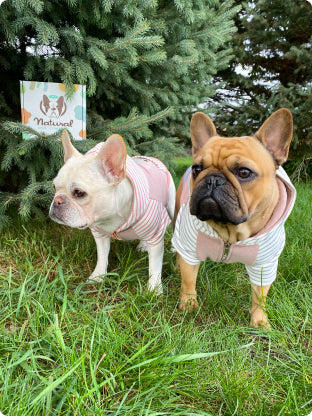 Over the years, I have had the opportunity to work with many shelter dogs. I have provided them with products from the Natural Dog Company, volunteered in shelters and fostered dozens of dogs for rescues in the Austin area. I personally, know how wonderful shelter dogs can do and how one act of saving a life can change not only the dog’s world but your own.
Over the years, I have had the opportunity to work with many shelter dogs. I have provided them with products from the Natural Dog Company, volunteered in shelters and fostered dozens of dogs for rescues in the Austin area. I personally, know how wonderful shelter dogs can do and how one act of saving a life can change not only the dog’s world but your own.
Unfortunately, many people are not aware of the joys a shelter dog can be and they often ignore the dogs available in shelters because of the myths surrounding these dogs. It is important to realize that dogs at shelters are not what you think and it takes education and awareness to help destroy the misconceptions that are surrounding them.
While I often feel that the best advice for anything is to get involved, if you are not sure where to start or even if a shelter dog is the right dog for you, take the time to read through this article to learn that many of the misconceptions of shelter dogs is not true.
Misconception Number One: There are only Mixed Breeds in Shelters
One of the biggest misconceptions regarding shelter dogs is that only mixed breed dogs end up in shelters. Unfortunately, that is not always the case and even a well bred, purebred dog can wind up in a shelter. While many reputable breeders strive to rehome all the dogs produced by their kennels, some purebred dogs still slip through the cracks and can wind up in shelters. In addition, there are hundreds of purebred dogs who are not from ethical breeders that can end up on a shelter.
When it comes down to numbers, it is believed that roughly a quarter of dogs in shelters are purebred. What this means for the average dog owner is that it is very easy for dog owners or potential dog owners to find a breed that they want without having to purchase directly from a breeder.
That being said, the many mixed breed dogs in a shelter are as worthy of attention as their purebred counterparts and I would recommend going to a shelter with an open mind and an open heart…who knows, you may end up with a mixed breed dog stealing your heart.
Misconception Number Two: Shelter Dogs are Old and Unwanted
While there are many dogs that are old, and all shelter dogs are unwanted, not all shelter dogs are old. In fact, it is very common for whole litters of puppies or a pregnant female to be brought to a shelter and you can enjoy puppyhood when you adopt from a shelter.
In addition, a large number of dogs in shelters are less than two years old, making the majority of dogs in shelters still young.
Misconception Number Three: They have Behavioral Problems
While it is true that some dogs end up in shelters either because of behavioral problems, it is not the case for a vast majority of them. In fact, many dogs end up in shelters because owners didn’t have the time for them, an owner died or relocated or because the dog was lost.
is not the case for a vast majority of them. In fact, many dogs end up in shelters because owners didn’t have the time for them, an owner died or relocated or because the dog was lost.
Those that do have behavioral problems is usually due to lack of training and can be fixed very easily. Shelters and rescue groups work to provide these dogs with the behavior and training modifications that they need in order to properly integrate into their new homes.
Misconception Number Four: You can Never Trust a Shelter Dog
Another common misconception that is seen with shelter dogs is that people often feel they are sent to the shelter due to aggression problems. The fact of the matter is a shelter dog that shows signs of aggression will never be placed up for adoption.
Shelter dogs can be trusted as much as a dog that you raise by yourself. You should never leave dogs alone with young kids and all dogs will go through destructive periods. Having a crate will help curb a lot of the problems that can occur due to boredom.
Finally, shelter dogs are surprisingly resilient. They often bounce back from their ordeals, no matter what they are, and with a loving and supportive owner, they quickly capture the hearts of everyone who meets them.
Misconception Number Five: I Would Never Get Approved
 One of the most common misconceptions that people have is that they would never get approved for a shelter dog. While this can be the case with some rescues, shelters are usually just looking for a committed and informed rescuer. For many shelters, it is not where you live, your income level or your job, it is about being physically and emotional prepared and committed to take on any challenges that a shelter dog needs.
One of the most common misconceptions that people have is that they would never get approved for a shelter dog. While this can be the case with some rescues, shelters are usually just looking for a committed and informed rescuer. For many shelters, it is not where you live, your income level or your job, it is about being physically and emotional prepared and committed to take on any challenges that a shelter dog needs.
Now that we have dispelled the misconceptions involved with shelters and shelter dogs, there are ways that you can help shelter dogs without adopting one. Some excellent ways to help are:
- Donate your Facebook or Twitter Status: One of the easiest ways to help a shelter dog is to share their information on your facebook or twitter accounts. You can also remind everyone that October is Adopt a Shelter Dog month.
- Foster a Dog: If you are not prepared to adopt a dog fully, why not become a foster parent to a dog in need. Many rescues take the dogs out of shelters and place them into temporary homes. This enables the dog to experience less stress and experience training while they wait for a forever home.
- Volunteer at the Shelter: Shelters often need extra hands and there are always a number of jobs that you can do from photographing the dogs to taking them for a walk.
- Donate Funds: Many shelter and rescue groups need extra money to ensure that they can meet the needs of their shelter animals. Donations are always welcome.
- Donate Goods: Finally, shelters often need food, treats and other goods, including Snout Soother, for their shelter dogs. Gather a bunch of supplies and head on down to your local shelter to make some special dogs happy.










